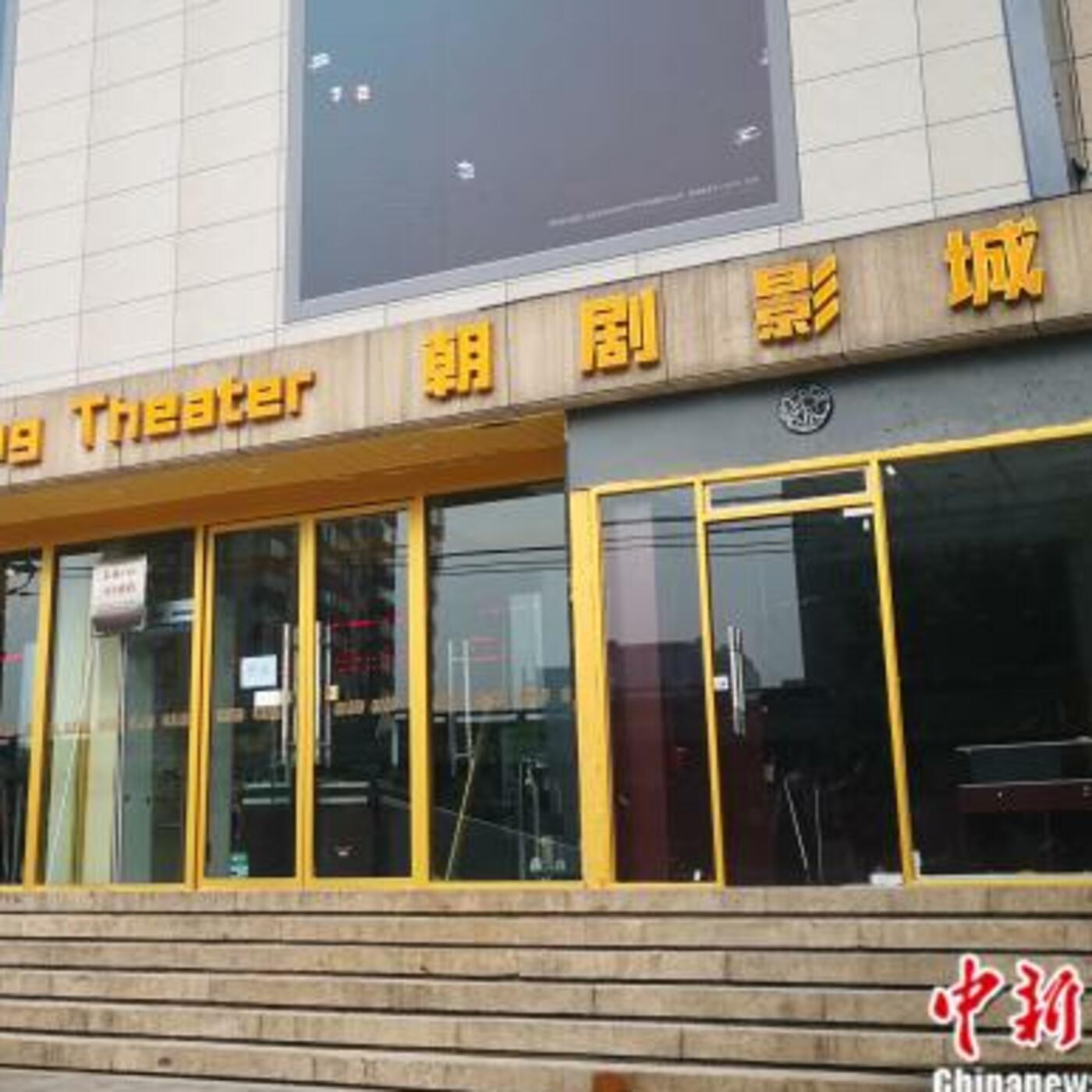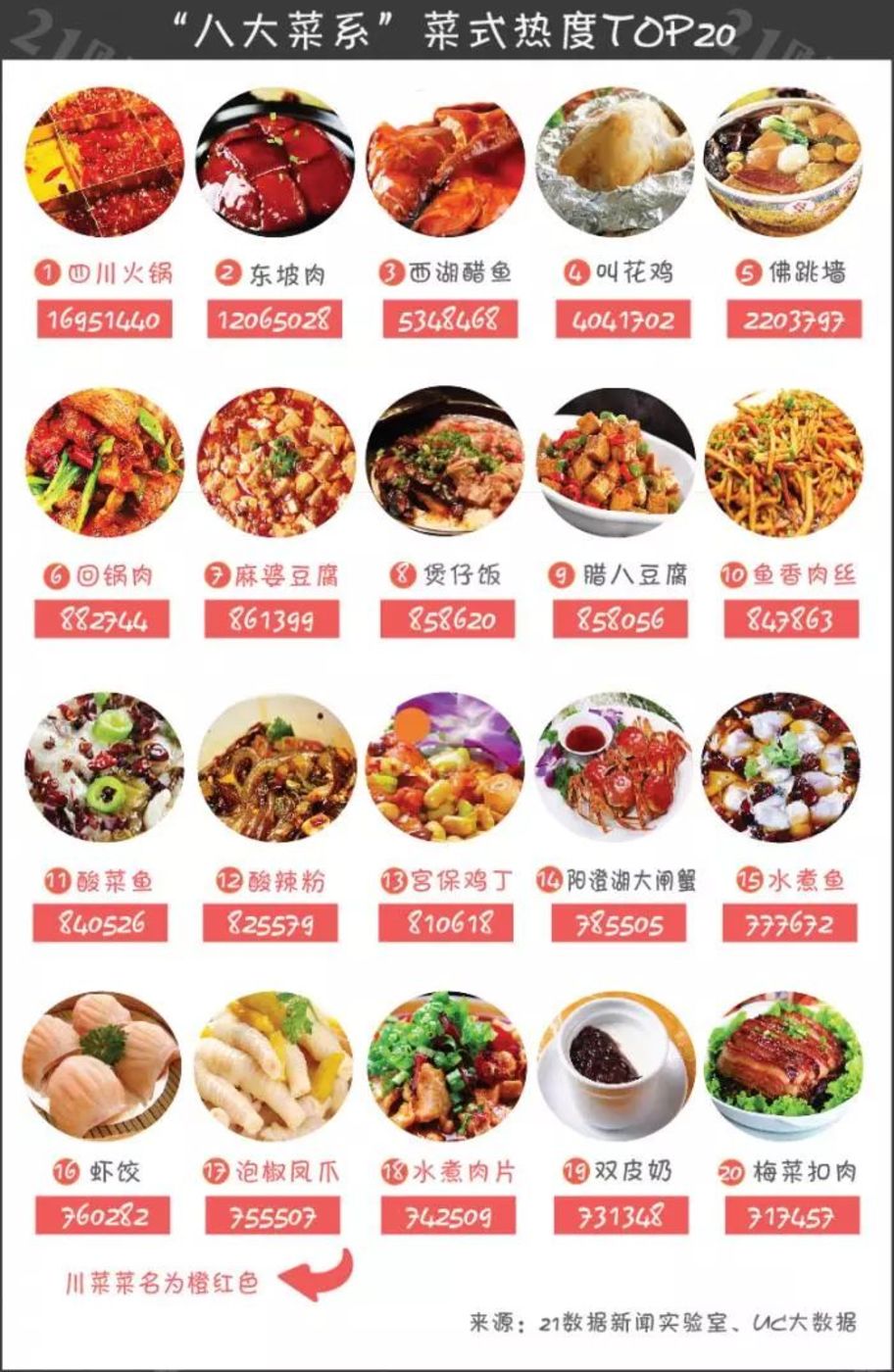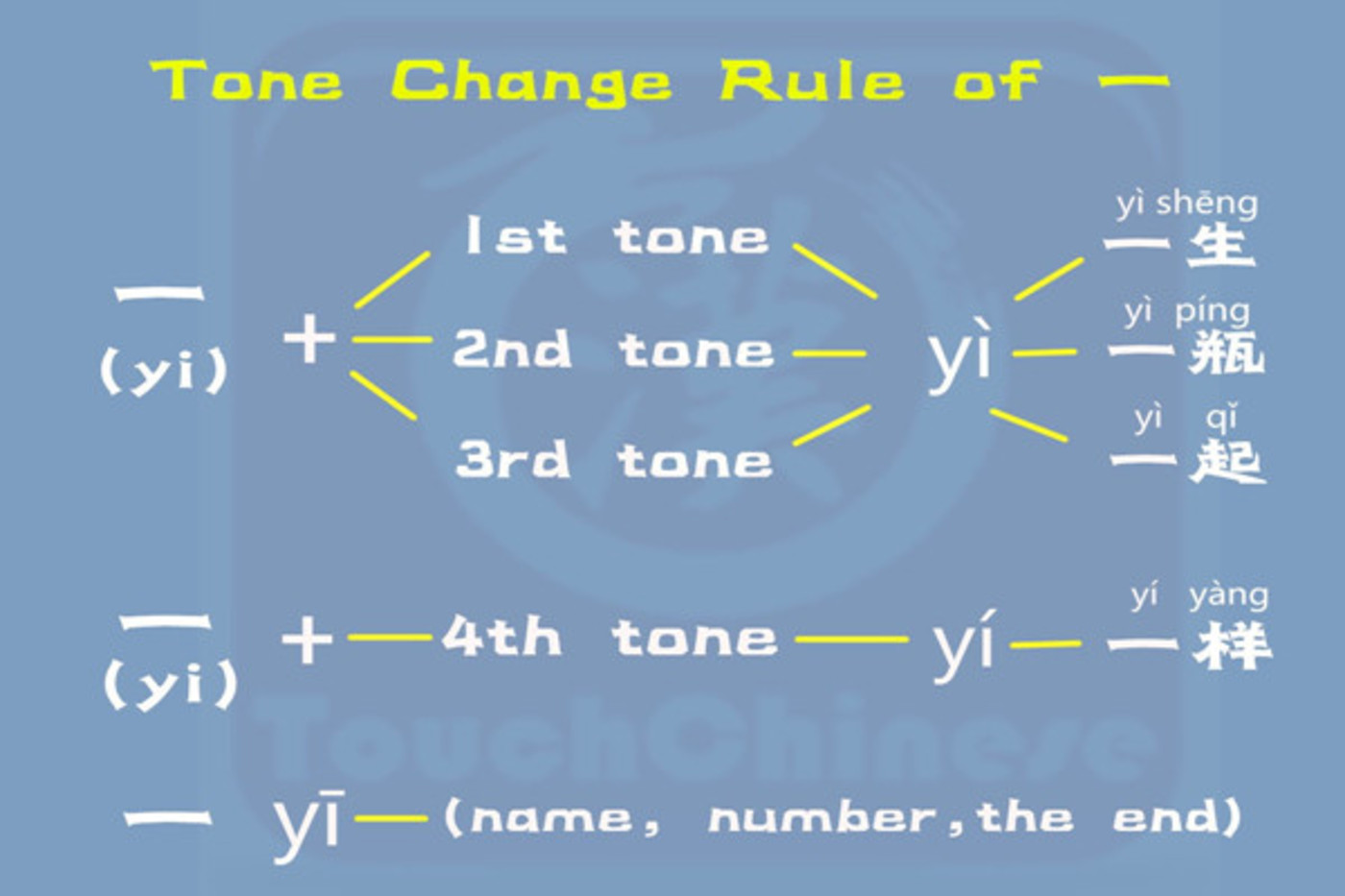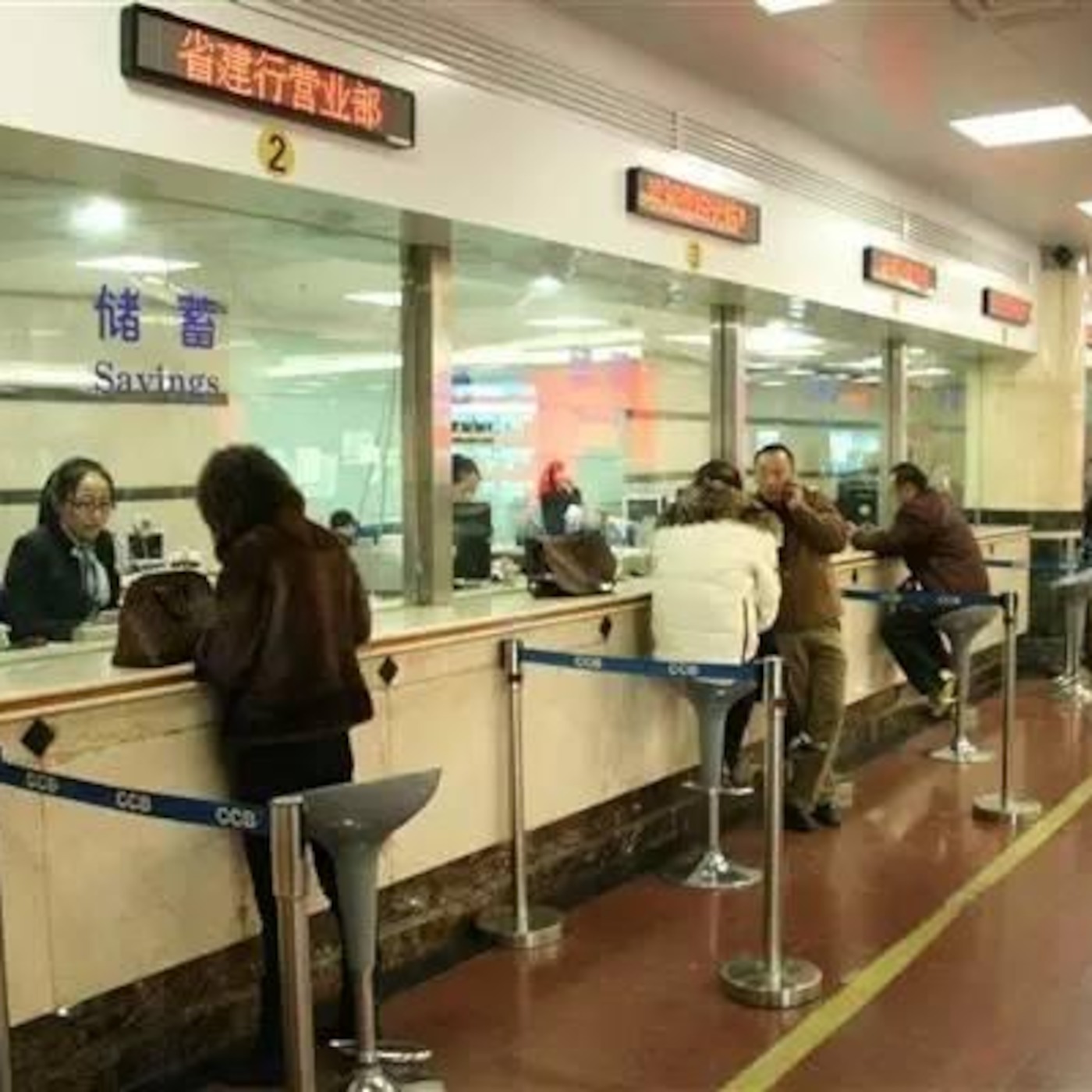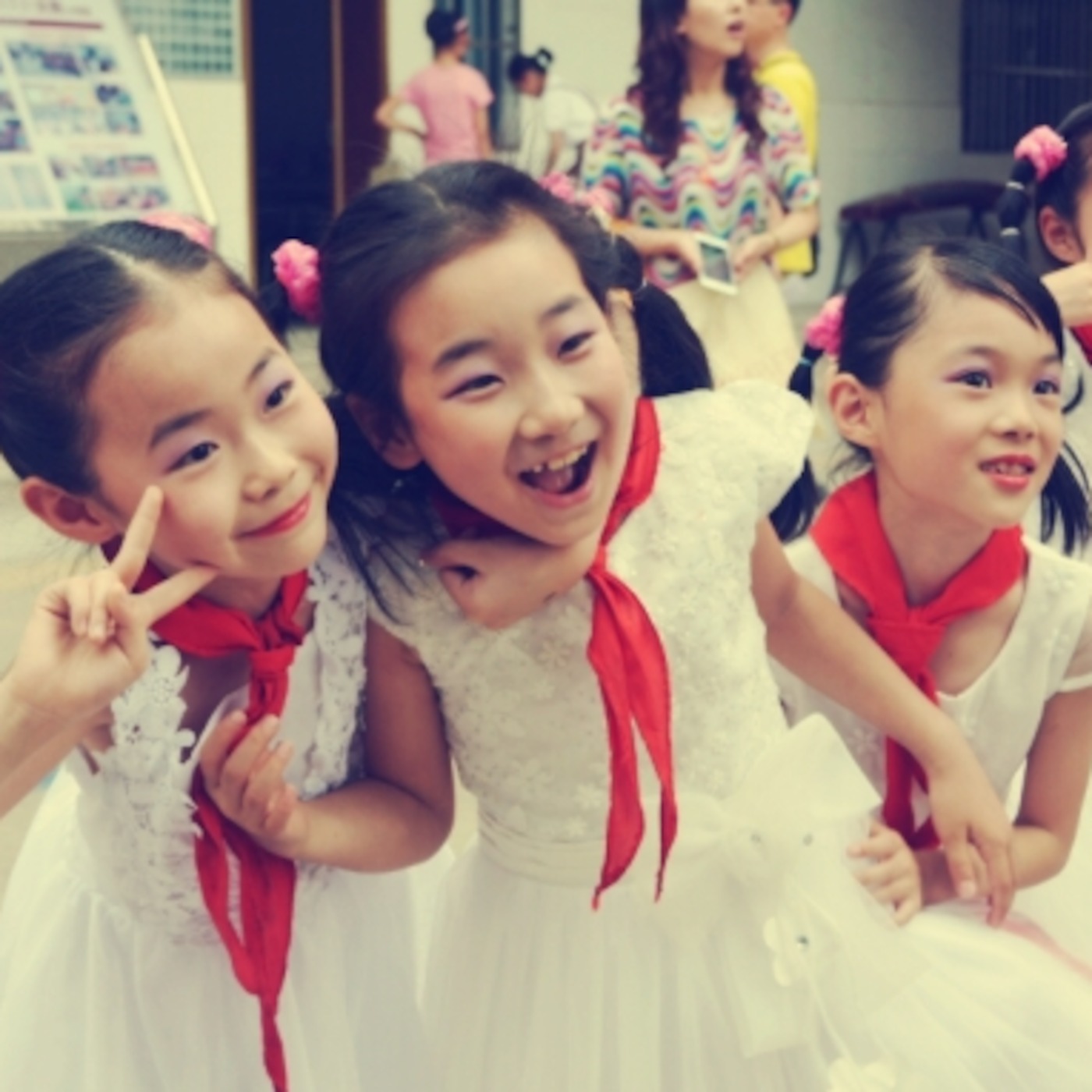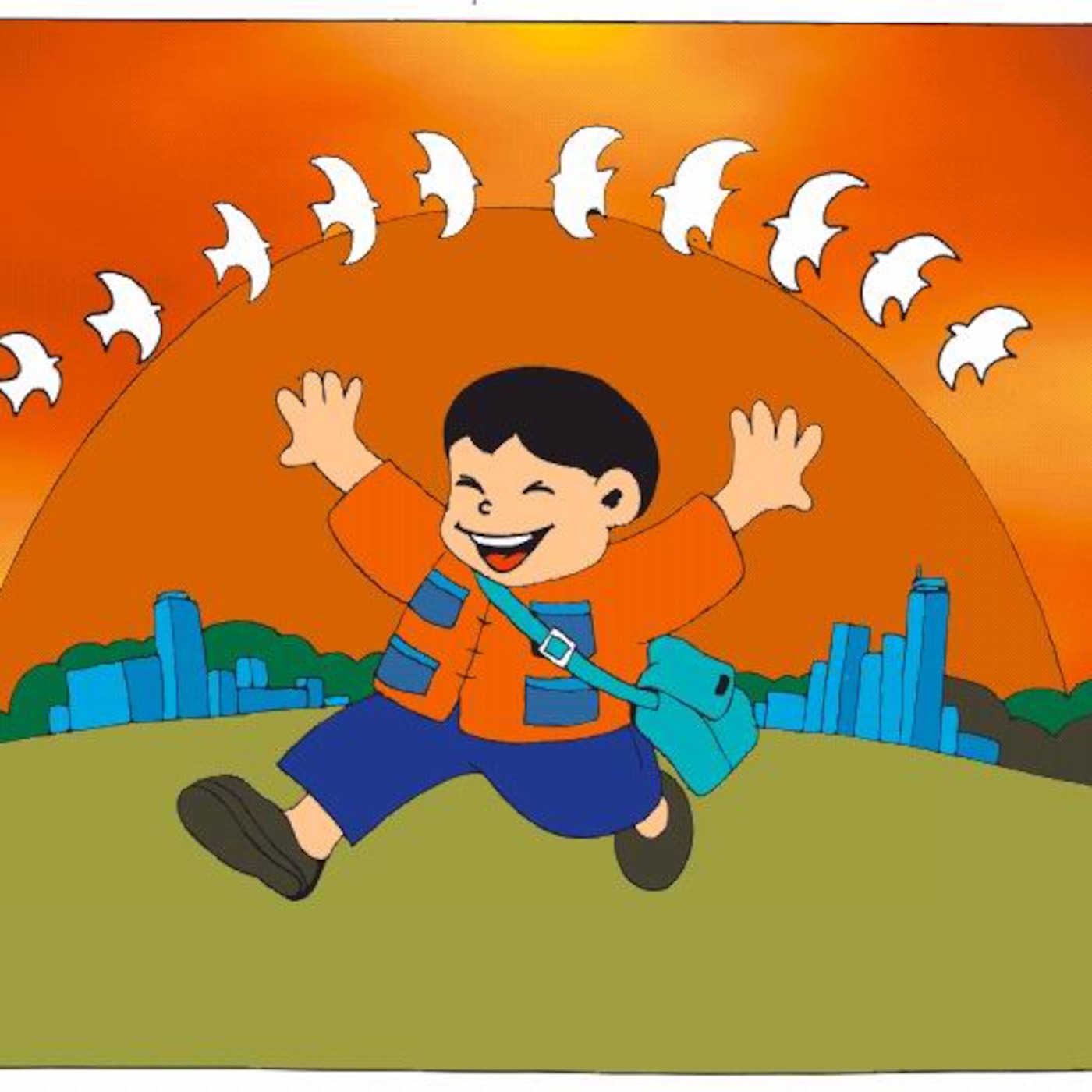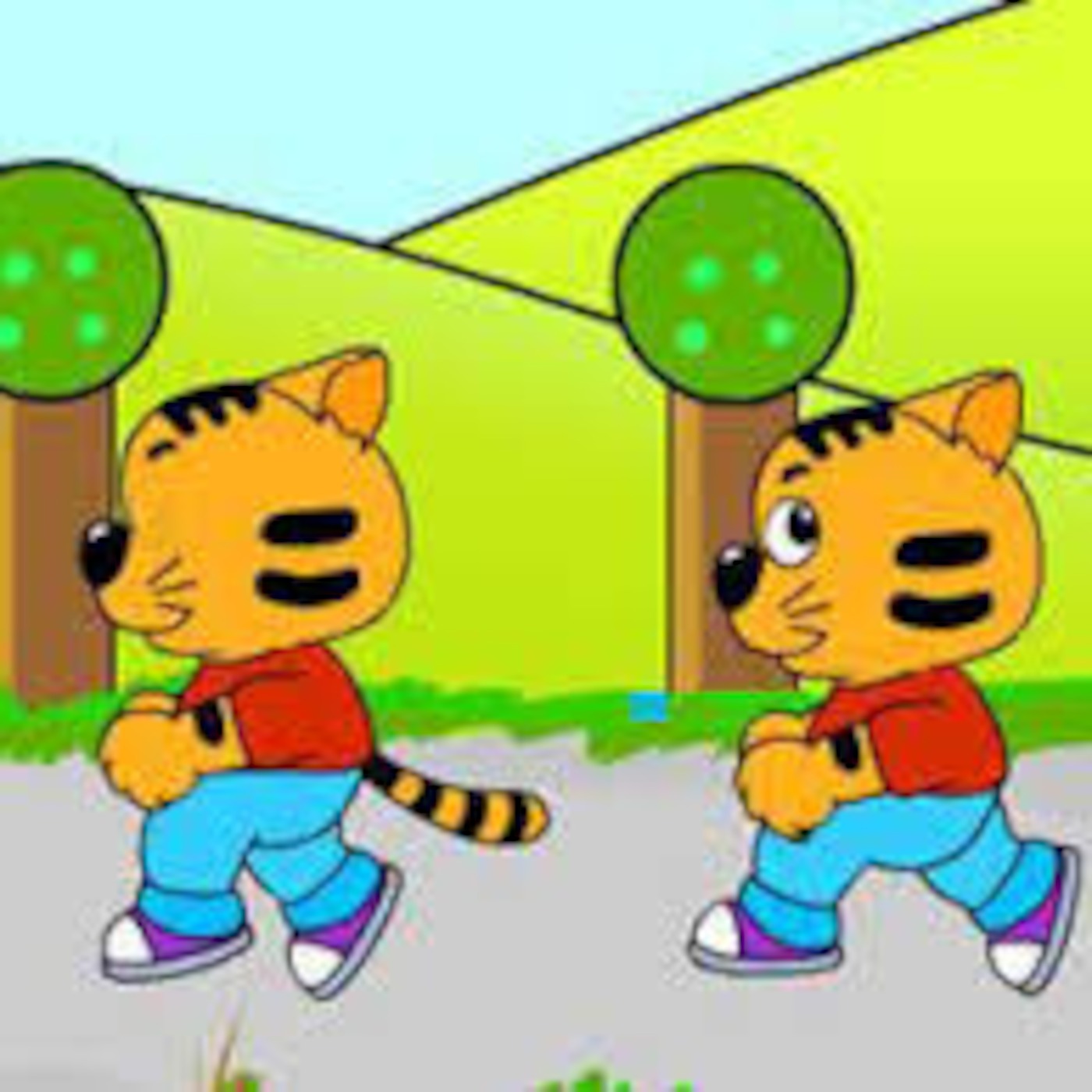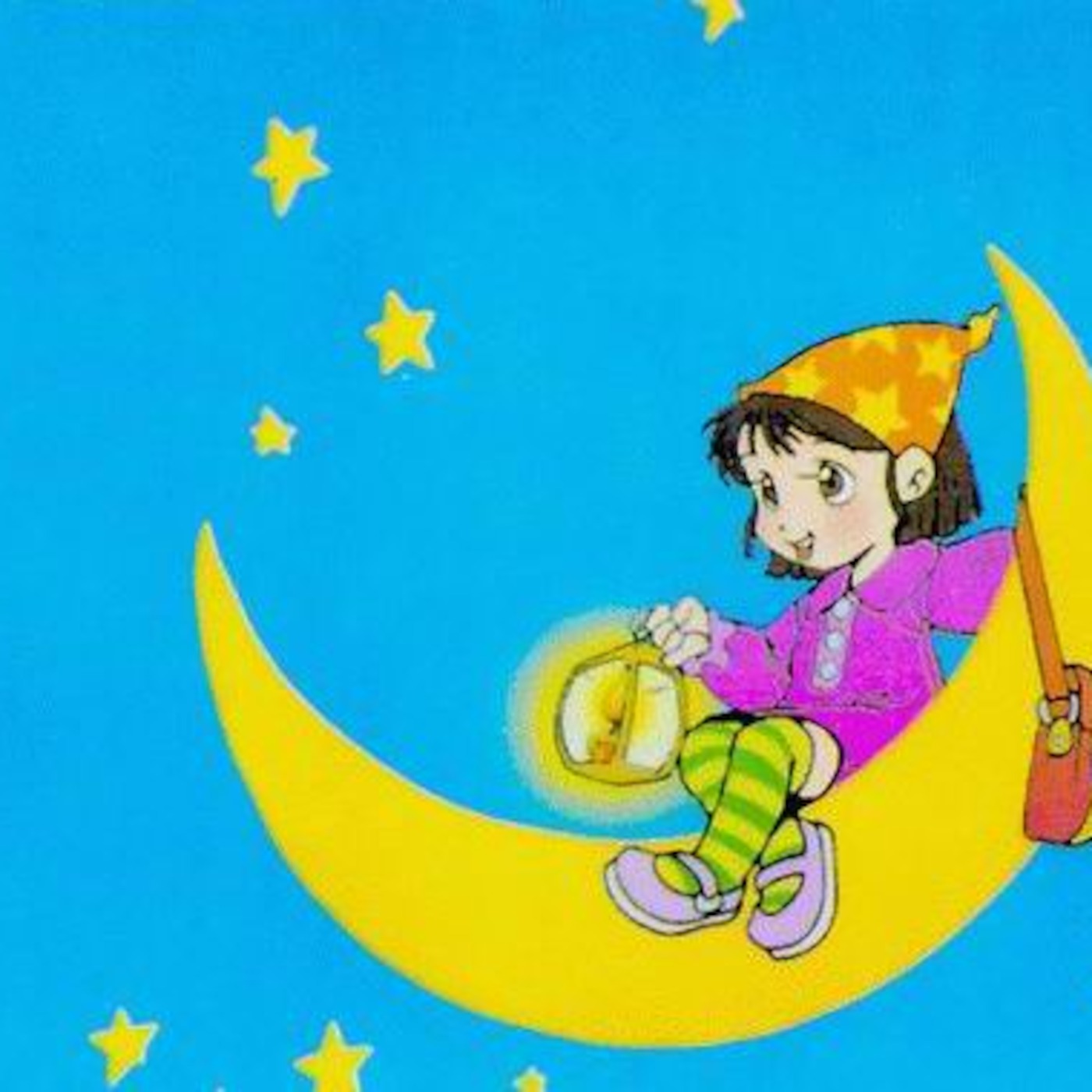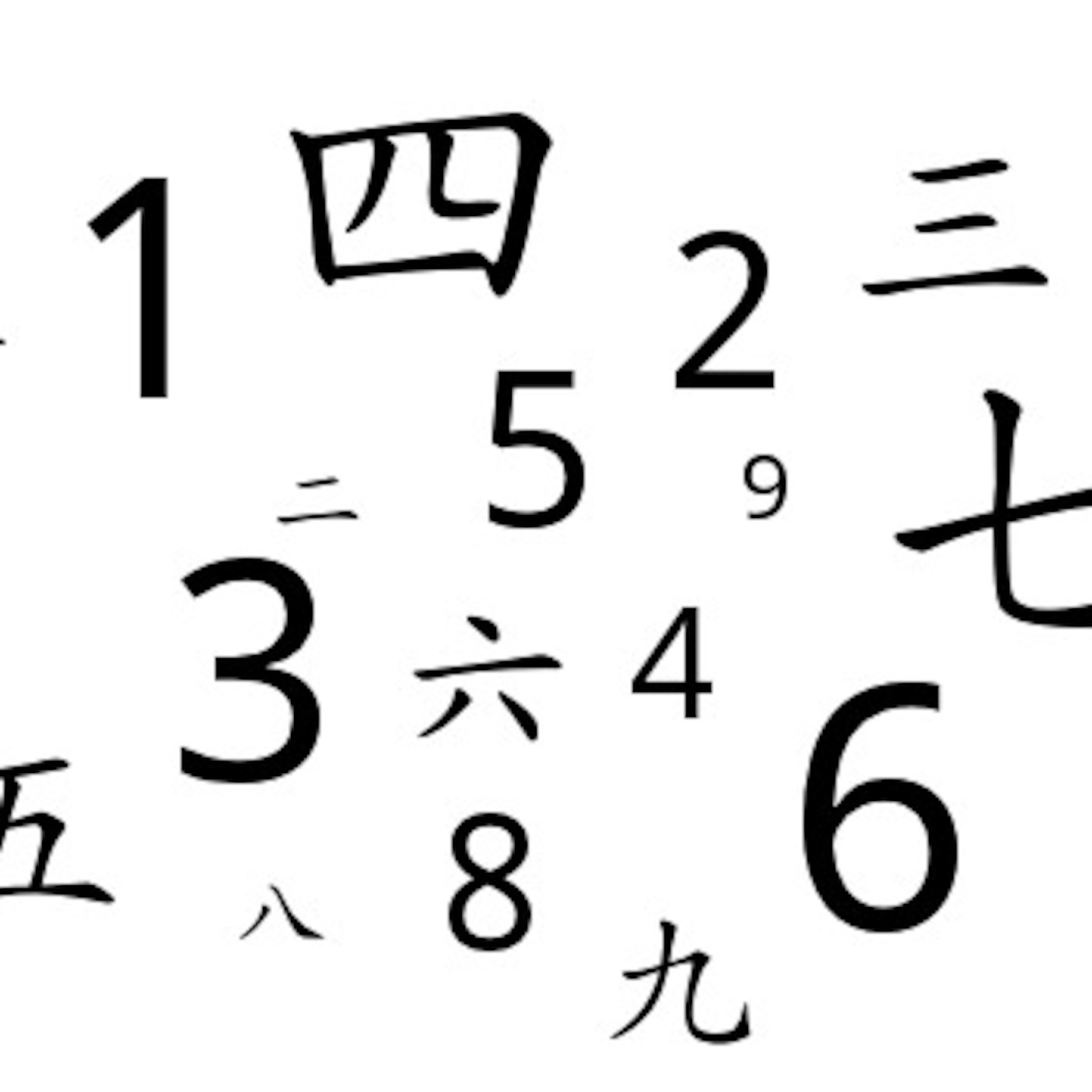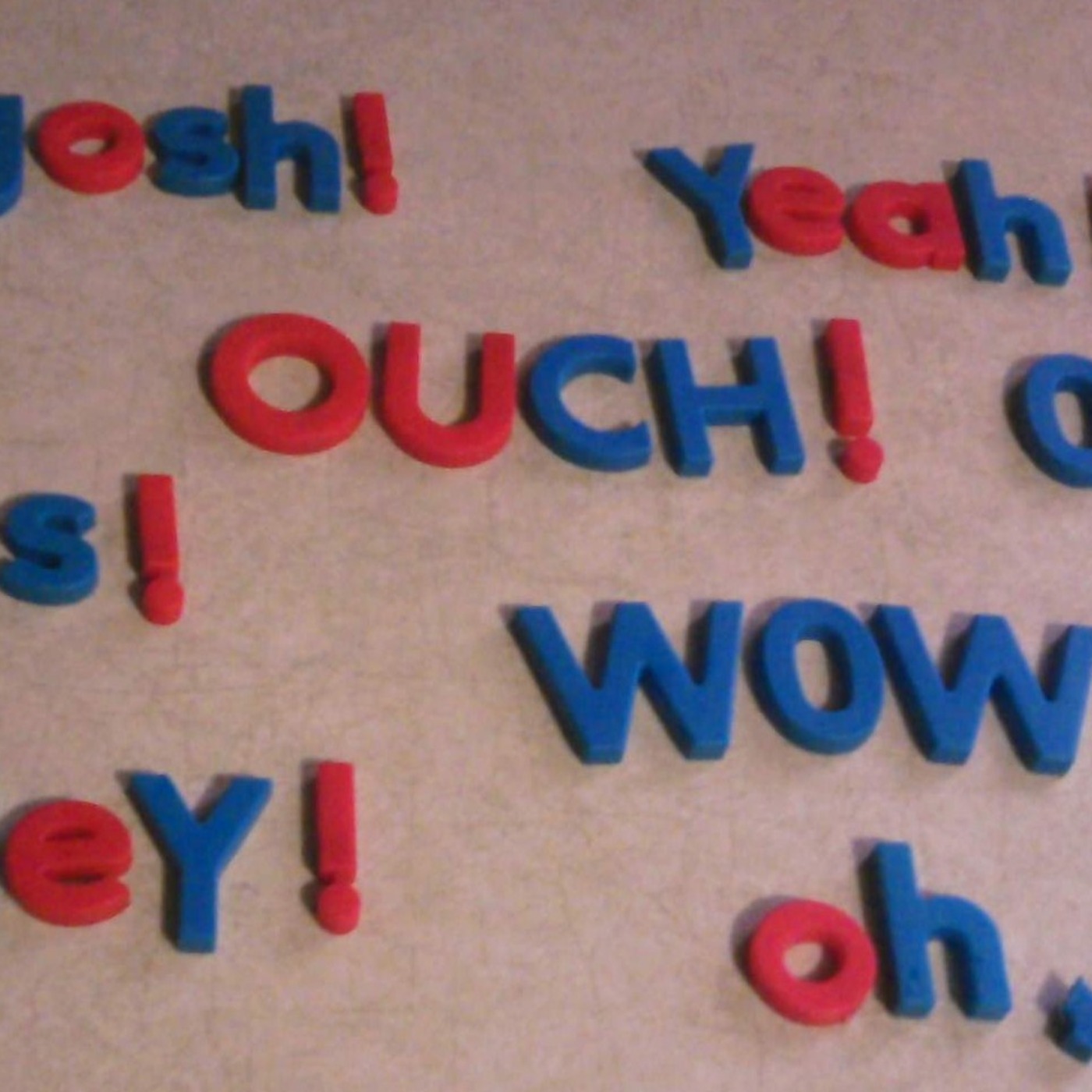Discover Wen Guo's Podcast
Wen Guo's Podcast

42 Episodes
Reverse
1
牛肉面
niúròumiàn
beef noodles
2
羊肉串
yángròuchuàn
lamb kebab
3
鸡翅
jïchì
chicken wings (fast food)
4
鸡蛋
jïdàn
chicken egg
5
烤鸭
kǎoyā
roast duck
6
糖醋鱼
tángcùyú
sweet and sour fish
7
鱼香肉丝
yú xiāng ròu sī
Yu-Shiang Shredded Pork; (literally) fish-flavored shredded pork
8
兰州拉面
lánzhōu lāmiàn
Lanzhou pulled noodles
9
香辣虾
xiāng là xiā
spicy shrimp
10
水煮鱼
shuǐ zhǔ yú
Sichuan poached sliced fish in hot chili oil
11
米饭
mǐfàn
(cooked) rice
12
炒饭
chǎofàn
fried rice
13
酸辣汤
suān là tāng
hot and sour soup
14
啤酒
píjiǔ
beer
15
烧烤
shāokǎo
barbecue,roast
16
麻辣香锅
málà xiāng guō
mala hot pot (dry)
17
爆米花
bào mǐhuā
puffed rice,popcorn
18
菜单
càidān
menu
19
麻辣烫
málàtàng
boiled veggies and meat in the spicy numbing hot soup
20
麻辣火锅
málà huǒguō
mala hot pot (with soup)
http://ichinesematters.blogspot.com/2016/10/tone-changes.html
1. Tone sandhi [3] [3] ⇒ [2] [3]
1) 语法yǔfǎ (grammar)
2) 雨伞yǔsǎn (umbrella)
3) 保养Bǎoyǎng (maintenance)
4) 洗脸xǐliǎn (wash face)
5) 广场guǎngchǎng (public square)
6) 老鼠lǎoshǔ (mouse)
7) 老虎lǎohǔ (tiger)
8) 勇敢yǒnggǎn (brave)
2. yī 一(one)
The word yī 一 (one)is 1st tone when used as part of a number.
E.g. yī 一 (one), èr 二 (two), sān 三 (three)…
• But yī 一 (one) is pronounced with 4th tone when preceding 1st, 2nd, or 3rd tones.
E.g. Yī tiān is pronounced yì tiān 一天 (one day)
Drills:
yì zhī jī
一只鸡
a chicken
yì jiā rén
一家人
a family
yì jiān jiàoshì
一间教室
a classroom
yì bāo yān
一包烟
a package of cigarettes
yì jié kè
一节课
a lesson
yì píng jiǔ
一瓶酒
a bottle of wine
yì tiáo hé
一条河
a river
yì tóu niú
一头牛
a cow
yì kǒu rén
一口人
a person in a household
yì wǎn fàn
一碗饭
a bowl of rice
yì suǒ xuéxiào
一所学校
a school
yì zhǒng yǔyán
一种语言
a kind of language
• Yī is pronounced with 2nd tone when preceding a 4th tone.
E.g. Yīcì is pronounced yícì 一次 (one time, once)
Drills:
yí wèi lǎoshī
一位老师
a teacher
yí gè gēge
一个哥哥
an older brother
yí zuò dàlóu
一座大楼
a big building
yí kuài xiàngpí
一块橡皮
an eraser
3. bù 不
The word bù 不(no) has the 4th tone, but when it is followed by another 4th tone, it becomes 2nd tone.
E.g. bù shì 不是 (is not) is pronounced búshì
Practices:
bù duō
不多
not a lot
bù'ān
不安
unease
bù zhīdào
不知道
do not know
bùnéng
不能
can not
bùxíng
不行
no/ it does not work. (colloquial)
bùchéng
不成
no/ it does not work. (dialect)
bù míngbái
不明白
do not understand clearly
bù hǎo
不好
not good
bù xǐhuān
不喜欢
do not like
bù kěyǐ
不可以
can not
(to be not allowed to do something)
bù dǒng
不懂
do not understand
búshì
不是
to be not
búhuì
不会
can not (do not know how to do something)
búqù
不去
do not go
búpà
不怕
not afraid
1. 大家好!
2. 我叫王大海,我是美国人。
3. 我的家在北京,我家有五口人,爸爸、妈妈、哥哥、妹妹、还有我。
4. 我今年28岁,在北京大学读书,我学中文专业。
5. 我在中国学习三年了。
6. 星期一到星期五我每天6点起床,晚上10点睡觉。
7. 周末我平常9点起床,22点睡觉。
8. 我最近很忙,我昨天睡了7个小时。
9. 下个月我要和我的同屋去上海,这是我第三次去上海,我去年去过两次。
10. 我们买了10月2号的火车票,一共220块。
---------
1. Dàjiā hǎo!
2. Wǒ jiào wáng dàhǎi, wǒ shì měiguó rén.
3. Wǒ de jiā zài běijīng, wǒjiā yǒu wǔ kǒu rén, bàba, māmā, gēgē, mèimei, hái yǒu wǒ.
4. Wǒ jīnnián 28 suì, zài běijīng dàxué dúshū, wǒ xué zhōngwén zhuānyè.
5. Wǒ zài zhōngguó xuéxí sān niánle.
6. Xīngqí yī dào xīngqíwǔ wǒ měitiān 6 diǎn qǐchuáng, wǎnshàng 10 diǎn shuìjiào.
7. Zhōumò wǒ píngcháng 9 diǎn qǐchuáng,22 diǎn shuìjiào.
8. Wǒ zuìjìn hěn máng, wǒ zuótiān shuìle 7 gè xiǎoshí.
9. Xià gè yuè wǒ yào hé wǒ de tóng wū qù shànghǎi, zhè shì wǒ dì sān cì qù shànghǎi, wǒ qùnián qùguò liǎng cì.
10. Wǒmen mǎile 10 yuè 2 hào de huǒchē piào, yīgòng 220 kuài.
1 At the bank 在银行zài yínháng
2 Go to the bank 去银行qù yínháng
3 Go to the Citi bank 去花旗银行qù huāqí yínháng
4 Want to go to the Citi bank 要去花旗银行 yào qù huāqí yínháng
5 Go to the bank of China 去中国银行qù zhōngguó yínháng
6 Would like to go to the bank of China 想去中国银行xiǎng qù zhōngguó yínháng
7 USD 美元/美金měiyuán/měijīn
8 RMB 人民币rénmínbì
9 GBP 英镑 yīngbàng
10 EUR 欧元ōuyuán
11 The exchange rate between USD and RMB 美金和人民币的汇率měijīn hé rénmínbì de huìlǜ
12 Service fee 服务费 fúwù fèi
13 Without service fee 没有服务费méiyǒu fúwù fèi
14 Account 账户zhànghù
15 Open an account 开一个帐户kāi yīgè zhànghù
16 Close an account 关一个帐户guān yīgè zhànghù
17 Current deposit account 活期账户huóqī zhànghù
18 Term deposit account 定期账户dìngqī zhànghù
19 Current deposit account or term deposit account? 活期账户还是定期账户? Huóqī zhànghù háishì dìngqī zhànghù?
20 Deposit or withdraw money? 存钱还是取钱?Cún qián háishì qǔ qián?
21 Interest rate or exchange rate? 利率还是汇率?Lìlǜ háishì huìlǜ?
22 Citibank or Bank of America? 花旗银行还是美国银行?Huāqí yínháng háishì měiguó yínháng?
23 Is that an ATM? 那是一个取款机吗?Nà shì yīgè qǔkuǎn jī ma?
24 Exchange some money 换钱huànqián
25 Deposit some money 存钱cún qián
26 Withdraw some money 取钱qǔ qián
27 Want to deposit some money 要存一些钱yào cún yīxiē qián
28 Want to go to Bank of America to deposit some money 要去美国银行存钱 yào qù měiguó yínháng cún qián
29 Would like to withdraw some money 想取一些钱xiǎng qǔ yīxiē qián
30 Would like to go to bank of China to withdraw some money 想去中国银行取一些钱xiǎng qù zhōngguó yínháng qǔ yīxiē qián
1 How much...? ...多少钱Duōshǎo qián
2 Shirt 衬衫chènshān
3 Red shirt 红色的衬衫hóngsè de chènshān
4 That red shirt 那件红色的衬衫nà jiàn hóngsè de chènshān
5 How much is that red shirt? 那件红色的衬衫多少钱? Nà jiàn hóngsè de chènshān duōshǎo qián?
6 Too expensive! 太贵了!Tài guìle!
7 That sweater is too expensive! 那件毛衣太贵了!Nà jiàn máoyī tài guìle!
8 Can you lower the price? 便宜一点儿,可以吗?Piányí yīdiǎn er, kěyǐ ma?
9 How much would you like to offer? 你想给多少钱? Nǐ xiǎng gěi duōshǎo qián?
10 A pair of black pants 一条黑色的裤子yītiáo hēisè de kùzi
11 A pair of brown shoes 一双棕色的鞋yīshuāng zōngsè de xié
12 A pair of white socks 一双白色的袜子yīshuāng báisè de wàzi
13 A grey suit 一件灰色的西装yī jiàn huīsè de xīzhuāng
14 A pair of blue jeans 一条蓝色的牛仔裤yītiáo lán sè de niúzǎikù
15 Half kilograms 一斤yī jīn
16 One yuan for one jin 一块一斤jin yīkuài yī jīn
17 One jin of tomatoes 一斤西红柿yī jīn xīhóngshì
18 To buy 买mǎi
19 Want to buy two jins of apples 要买两斤苹果yàomǎi liǎng jīn píngguǒ
20 Bought two jins of strawberry 买了两斤草莓mǎile liǎng jīn cǎoméi
21 Total 一共yīgòng
22 How much in total? 一共多少钱?Yīgòng duōshǎo qián?
23 Fifty cents 五毛wǔmáo
24 Twenty yuan and twenty-two cents 二十块两毛二èrshí kuài liǎng máo èr
《歌声与微笑》由上海小荧星儿童合唱团演唱的一首歌曲,谷建芬作曲、王健作词,1989年首次在央视春晚上演唱。
请把我的歌带回你的家,
请把你的微笑留下.
请把我的歌带回你的家,
请把你的微笑留下.
明天明天这歌声,
飞遍海角天涯,飞遍海角天涯.
明天明天这微笑,
将是遍野春花,将是遍野春花
山,没有母亲的爱高;
海,没有母亲的爱深;
天,没有母亲的爱广阔;
地,没有母亲的爱包容。
太阳,没有母亲的爱温暖;
云朵,没有母亲的爱洁白;
花朵,没有母亲的爱灿烂。
母亲像黑夜里的一盏明灯,
在我迷失方向时,
她会指引我、照亮我,走向光明。
母亲像秋夜中的明月,
在我孤独、无助时,
她会陪伴我、支持我,给我充满信心。
母亲就如春天的天使,
送来了温暖的春风,
吹进孩子的心灵,了解孩子的需要。
这位慈爱的天使,
保护孩童的安全,
照顾孩童的生活,付出了一切。
她一天到晚为了我而忙碌,
不辞辛劳,无怨无悔。
谁在我们冷时为我们加衣服?
谁在我们饿时为我们煮饭菜?
谁在我们失败时鼓励我们?
又是谁在我们成功时为我们喜悦?
她不是机器人,不是电脑,而是我的妈妈。
也许岁月带走了您的丰采,
留给您头发的苍白,
但它永远带不走您慈祥的笑容。
我爱母亲的话,想说的说不尽,想写的写不完,一切,尽在不言中。
TOGETHER
妈妈,在这特别的日子里,请让我献上最诚挚的谢意!
妈妈感谢您! 我爱您!
This article was selected from《中文》book 6. http://www.hwjyw.com/fj/jcxz/zhongwen/6/all.pdf
拔萝卜,拔萝卜,哎哟哎哟,拔萝卜,哎哟哎哟,拨不动,老太太快快来,快来帮我们拔萝卜。
拔萝卜,拔萝卜,哎哟哎哟,拔萝卜,哎哟哎哟,拨不动,小姑娘快快来,快来帮我们拔萝卜。
拔萝卜,拔萝卜,哎哟哎哟,拨萝卜,哎哟哎哟,拨不动,小黄狗快快来,快来帮我们拨萝卜。
拨萝卜,拨萝卜,哎哟哎哟,拨萝卜,哎哟哎哟,拨不动,小花猫快快来,快来帮我们拨萝卜。
两只老虎,两只老虎,
跑得快,跑得快,
一只没有眼睛,一只没有尾巴,
真奇怪!真奇怪!
this article was selected from:
http://www.hwjyw.com/fj/jcxz/zhongwen/6/all.pdf
lesson 3 p.p. 25-26
弯弯的月儿,小小的船
Wān wān de yuè er, xiǎo xiǎo de chuán
A crescent moon, a small boat,
小小的船两头尖
xiǎo xiǎo de chuán liǎngtóu jiān
A small boat with two pointed sides,
我在小小的船里坐
wǒ zài xiǎo xiǎo de chuán lǐ zuò
I sit in this small boat,
只看见闪闪的星星蓝蓝的天
zhǐ kànjiàn shǎnshǎn de xīngxīng lán lán de tiān
All I can see is the stars twinkling in the deep blue sky
新年好呀, xīnnián hǎo ya, Happy New Year!
新年好呀, xīnnián hǎo ya, Happy New Year!
祝贺大家新年好, zhùhè dàjiā xīnnián hǎo, Wish everybody a happy new year
我们唱歌 我们跳舞wǒmen chànggē, wǒmen tiàowǔ, we sing, we dance
祝贺大家新年好zhùhè dàjiā xīnnián hǎo, wish everybody a happy new year
1) 十三亿
2) 两千五百八十三万一千两百二十二
3) 七百八十二亿六千五百四十五万三千两百二十五
4) 八千八百八十八万八千八百八十八
5) 三千零七十万五百零三
this article was selected from:
http://www.hwjyw.com/fj/jcxz/zhongwen/6/all.pdf
lesson 2
一二三四五六七,
我的朋友在哪里?
在北京,在上海,
我的朋友在这里!
Interjection
1)啊? 你说什么?
Á? Nǐ shuō shénme?
Ahh? What did you say?
2) 小王:小张!
Xiǎo wáng: Xiǎo zhāng!
Little Wang: Little Zhang!
小张:唉!我在听着呢!
Xiǎo zhāng: Ài! Wǒ zài tīng zhene!
Little Zhang: Yes! I am listening.
3)哎呀!又下雪了!
Āiyā! Yòu xià xuěle!
Gosh! It’s snowy again!
4)欸!你别在这儿吸烟。
Ài! Nǐ bié zài zhè'er xīyān.
Hey! Don’t smoke here.
5)哈哈!这个笑话太有意思了。
Hāha! Zhège xiàohuà tài yǒuyìsile.
Haha! This joke is so funny!
6)咳!原来这样啊!
Hài! Yuánlái zhèyàng a!
Ha, so that’s why!
7)哼!我才不信呢。
Hèng! Wǒ cái búxìn ne.
Humph! I don’t believe it!
8)小王:明天我们一起去图书馆,怎么样?
Xiǎo wáng: Míngtiān wǒmen yīqǐ qù túshū guǎn, zěnme yàng?
Little Wang: Let’s go to the library tomorrow, how’s that?
小张:嗯!好啊!
Xiǎo zhāng: Èn! Hǎo a!
Little Zhang: Uhhuh! Sounds good!
9)哦,我明白了!
Ò, wǒ míngbáile!
Oh, I see!
10)(电话)喂,小张在家吗?
(Diànhuà) wéi, xiǎo zhāng zàijiā ma?
(Telephone) Hello? Is Little Zhang at home?
Comments
Top Podcasts
The Best New Comedy Podcast Right Now – June 2024The Best News Podcast Right Now – June 2024The Best New Business Podcast Right Now – June 2024The Best New Sports Podcast Right Now – June 2024The Best New True Crime Podcast Right Now – June 2024The Best New Joe Rogan Experience Podcast Right Now – June 20The Best New Dan Bongino Show Podcast Right Now – June 20The Best New Mark Levin Podcast – June 2024
 United States
United States

